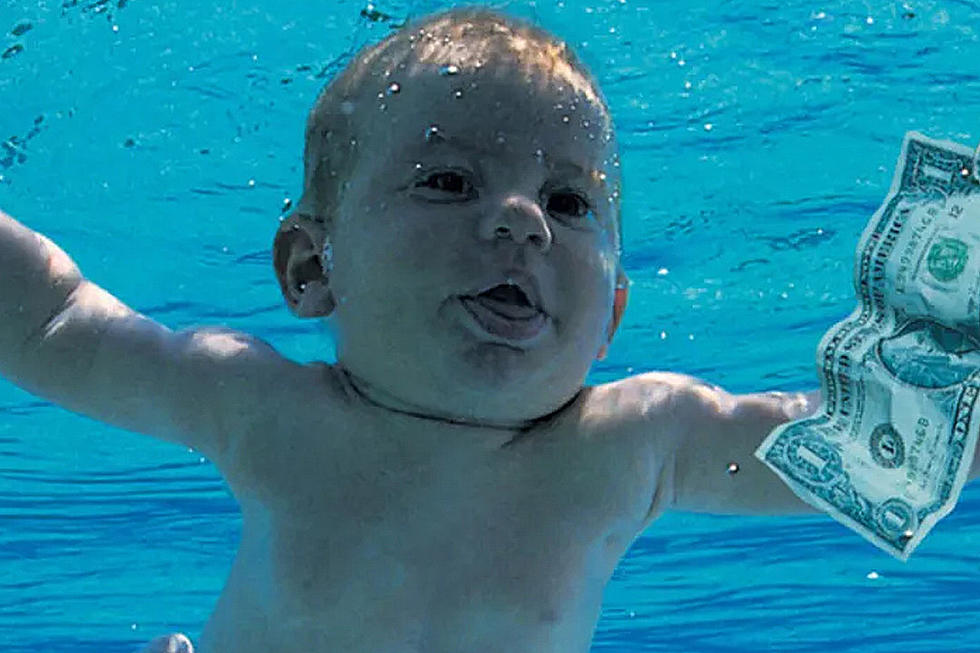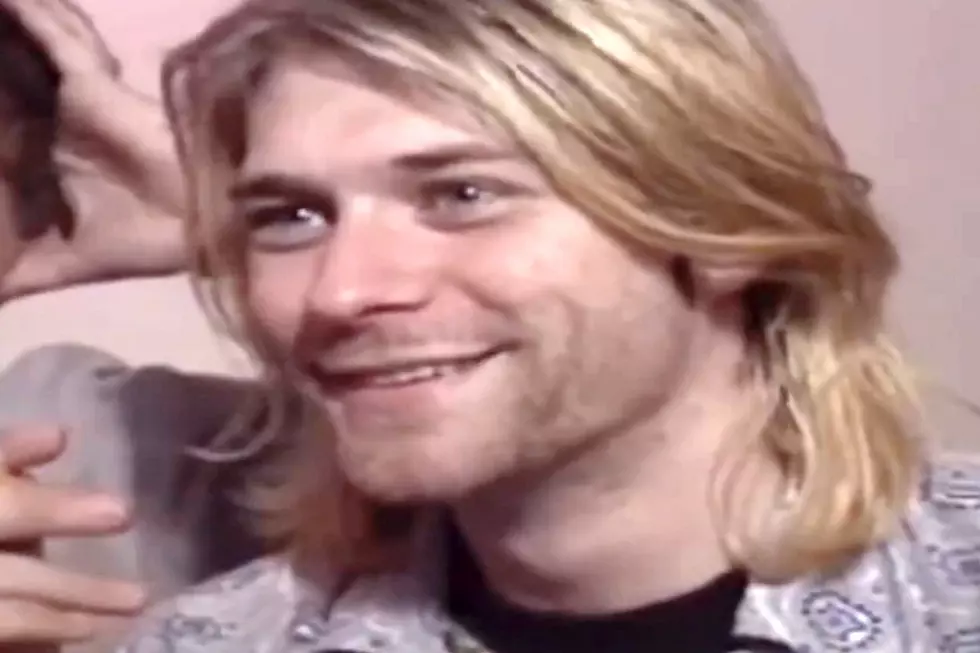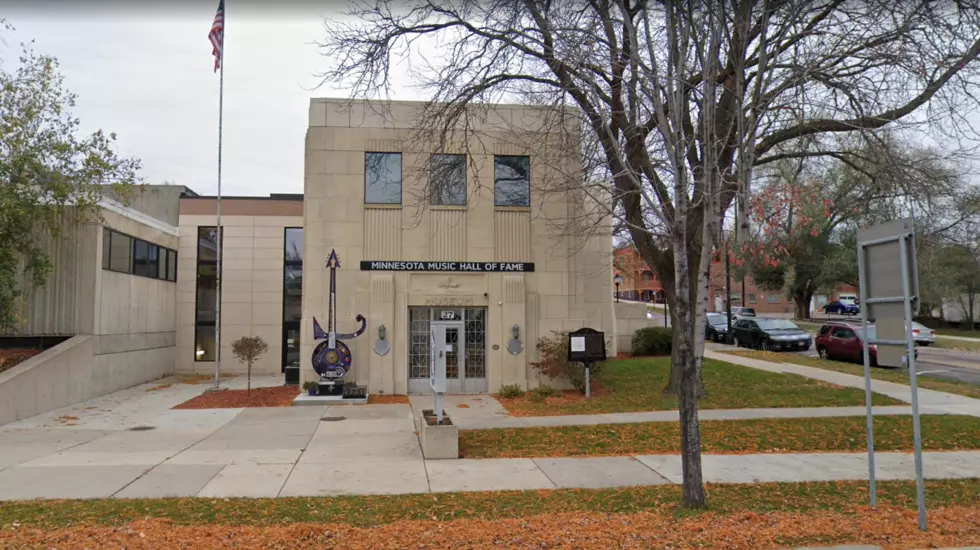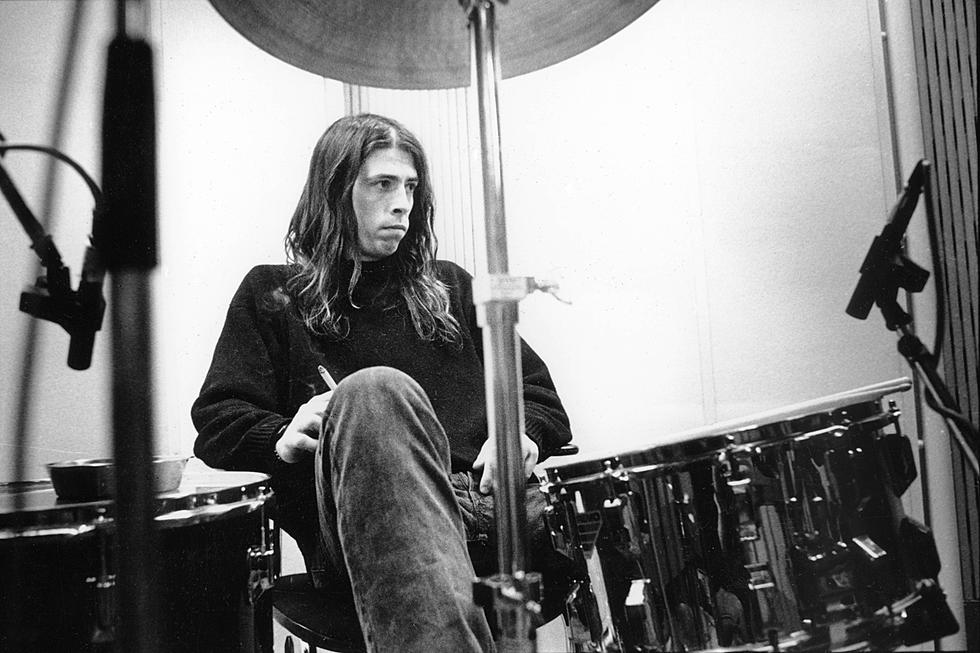
30 Years Ago: Nirvana Release Generation-Defining ‘Nevermind’
Nirvana didn’t set out to define a generation of music fans, but that’s exactly what they did with their classic 1991 album Nevermind.
The group’s debut, 1989’s Bleach, had served its purpose. The band built an underground fan base, toured around the country and generally enjoyed its first taste of being a true professional outlet. The LP didn’t top charts or spawn radio hits, but it wasn’t expected to. That kind of thing didn’t happen for a band like Nirvana … or so they thought.
Besides the natural evolution that comes with more time as a band, Nirvana’s biggest difference from album one to two was behind the kit. Gone was drummer Chad Channing, replaced by Dave Grohl, who’d joined the band in 1990. The newcomer’s hard-hitting style instantly added to Nirvana’s sound.
“It flowed, it sounded good, it was immediate,” bassist Krist Novoselic later detailed to Uncut. “It just fell into place; there was no awkwardness. Dave is such a good musician, he rose to the occasion – or we rose to him, whichever way it happened. It just seemed natural, and Dave was easy to hang out with.”
Watch the Video for Nirvana's 'Come as You Are'
The band had also decided to sign to a major label, leaving Seattle indie Sub Pop to join David Geffen’s DGC. “Geffen had a good track record,” front man Kurt Cobain told NME, noting its work with Sonic Youth. “They gave us total artistic control and don’t seem to want us to do anything that’ll damage our credibility.”
Armed with some previously recorded demos, coupled with a handful of new tracks, the trio retreated to Southern California in May 1991 and teamed up with producer Butch Vig. In rehearsal, the first song they played for him was a tune called “Smells Like Teen Spirit.” “I was floored,” Vig later admitted to Entertainment Weekly. “It was so good. I just remember getting up and sweating and trying to act cool. I just said, ‘Hmmm, play it again,’ but I was thinking, ‘Holy shit, that was amazing.’”
Watch Nirvana's Video for 'Smells Like Teen Spirit'
Soon the band was recording at Sound City Studios in Van Nuys, Calif. The location brought its own distinct atmosphere to the project.
“We just went there because it was cheap,” Grohl admitted to BBC 6 decades later. “We’d never been. And we walked in, and we thought it was a dump when we saw it.” Still, the studio quickly proved perfect for what Nirvana were trying to capture. “The room was just linoleum tile and perforated soundboard on the wall. It wasn’t fancy, but it didn’t need to be, because it just sounded so good. It was entirely real.”
The recording process moved swiftly, with the band routinely requiring only a few takes to lay down a track. Even though the vibe remained generally positive throughout, there were still occasional moments of stress.
“Kurt would have intense mood swings and just shut down. He would just go sit in a corner and disappear into his own space,” Vig recalled to Billboard. “Krist would say, ‘He just goes into these moods and he’ll come out in a while.’ So we’d find something to do for a couple hours, tweak the drums or work on bass sounds, and all of a sudden Kurt would pick up his guitar, ‘Let’s go.’ He’d be back, fully engaged. I just had to gauge when the timing was right to go for takes.”
Watch Nirvana's Video for 'In Bloom'
Lyrically, the material maintained a distinctively anti-commercial attitude.
“Smells Like Teen Spirit” was inspired by a rowdy night of social activism. For “Come as You Are,” Cobain kept things intentionally confusing. “The lines in the song are really contradictory,” he explained in 1991’s Nevermind, It's an Interview. “It’s just about people and what they’re expected to act like.”
On “In Bloom,” the front man aimed his harsh words at “rednecks” and “macho men.” “I just don’t like abusive people,” the singer matter-of-factly explained.
A major element of the grunge movement would be young people’s disenfranchisement at the dawn of the Gulf War, a feeling that echoed prominently in the words to “Breed.” “I was helpless when I was 12, when Reagan got elected, and there was nothing I could do about that,” Cobain explained. “But now this generation is growing up, and they’re in their mid-20s; they’re not putting up with it.”
Listen to 'Breed' by Nirvana
Throughout all of Nevermind, Nirvana tapped into a feeling that had been permeating within the subculture of the era.
“It was a record that people could put on and for 45 minutes could … work it out,” Grohl later opined to Rhythm magazine. “Whatever they were pissed off about, they could scream along to it; if they were sad, maybe they could be uplifted.”
As the album was finalized, buzz began to spread within the music industry. Still, the band kept expectations in check.
“We thought, ‘Hopefully, we'll get to achieve the success of a band like Sonic Youth, and each get to have our own apartment!’ That was the extent of our ambitions,” Grohl admitted decades later.
Released on Sept. 24, 1991, Nevermind began a slow burn to immortality. The album debuted at No. 144 on the Billboard chart, but as word of mouth began to spread, the LP continued climbing higher. Things accelerated even further when MTV moved the “Smells Like Teen Spirit” music video into heavy rotation.
“I think at first they pressed 100,000 copies, and those went in the first week,” Grohl recalled of the building fervor. “Then we were selling 150,000 copies a week, and it got to a point where we just couldn’t believe it any more. People were telling us this stuff and it was kind of funny, like winning some ridiculous contest that you never knew you’d entered and didn’t care whether you won or lost.”
Listen to 'Polly' by Nirvana
Even as the band’s star was rising, Cobain maintained his underdog mentality. Asked about grunge’s emergence during a November 1991 interview with Riff Raff magazine, the front man opined that punk was rock’s last great movement. “There will never be another musical revolution,” he declared at the time. “The only musical revolution that’s going to happen is that people are going to finally appreciate all music.”
By 1992, “musical revolution” was exactly the term used to describe Nirvana’s assault on the mainstream. On Jan. 11, Nevermind hit No. 1 on the Billboard chart, displacing Michael Jackson’s Dangerous from the top spot. The achievement would have seemed ludicrous just a year earlier, but in that span grunge had been swept up as the fad du jour across the globe - and Nirvana were the genre’s reluctant kings. Nevermind would eventually go on to sell more than 30 million copies worldwide.
“It was never our intention to become some huge rock phenomenon,” Grohl reflected a couple of years later, “and I think that that not being the goal sort of saved our ass. We just made this record, and we put it out and we went on tour. We never imagined anything like this. When things slowed down and we came off tour, when we actually stopped and sat down, we couldn’t believe it. We just thought, ‘God, look what fuckin’ happened.’”





